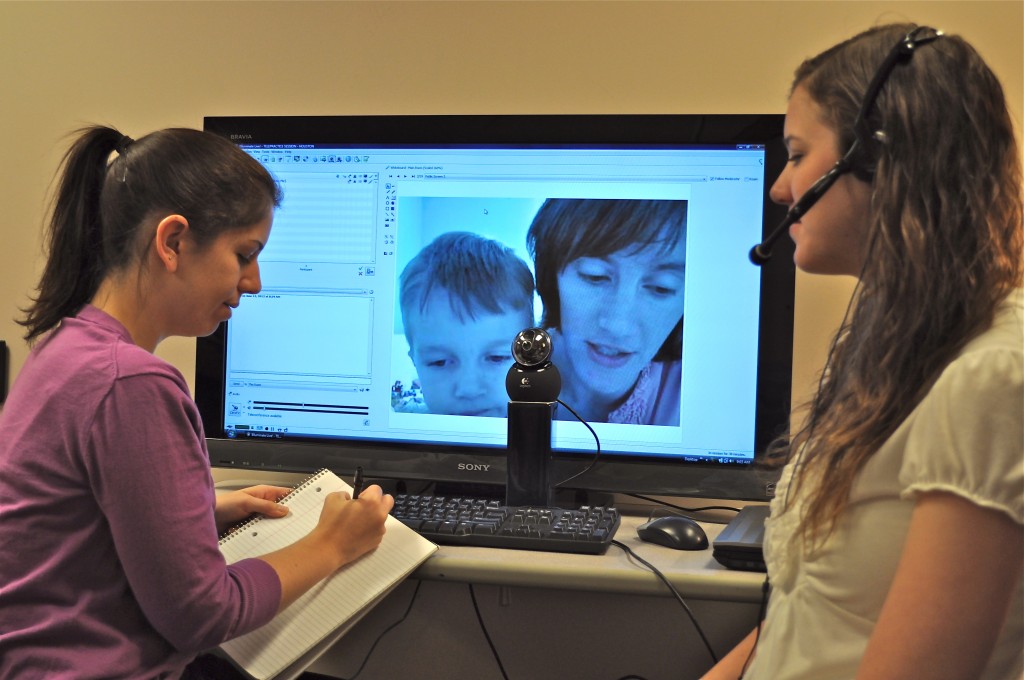As parents, you know there are many ways to enrich your child’s speech and language skills, including games, books, and language modeling activities. Online speech therapy resources offer your child a way to refine and practice their speech and language skills at home. Sometimes your child needs a little extra speech therapy, whether it is to refine certain skills they are learning on at school, reinforce what they are working on with their SLP, or just an extra resource to help build speech sounds. When looking to enhance your child’s speech therapy using online resources, we have located a few favorites that won’t take a bite out of your wallet.
Strategies for Affordable Speech Therapy via Telepractice
Speech Therapy TechniquesAre you looking forward to the holidays? If you’re like me, you’ve spent the last month writing down the perfect gift ideas for everyone on your list. It’s great to take a break from your everyday routine now and then, but holiday spending can put quite a dent in your budget. And raising a child with special needs can stretch your budget to the max. On top of speech therapy sessions, your child might have occupational therapy, physical therapy, applied behavioral analysis (ABA), and countless visits to the doctor’s office. Speech therapy can be affordable, but it might require a little trial-and-error to find the solution that best fits your family’s needs.
This week, we’ve focused on online speech therapy. Learning proper articulation with online resources like Speech Buddies University is a great way to keep your child engaged in the lesson plan. Plus, accelerating your child’s progress with the use of Speech Buddies in addition to other speech therapy techniques can help reduce the total amount of speech therapy required. This can cut your bill drastically – which is definitely helpful when you’re juggling gift-buying for all those fashionistas, jewelry lovers, and others on your holiday list. Here’s a look at some strategies for making online speech therapy (aka telepractice) affordable for your family.
Conquer the High Cost of Speech Therapy
Financial ResourcesFamilies with a speech disordered child often face a financial burden due to the high cost of speech therapy and other needed treatments. In fact, a survey published in Public Health Reports found that 40% of American families with children with special needs report feeling the strain of the financial toll that those healthcare needs cause. The survey further reported that children with disabilities are more likely to grow up in single-parent households, and that those parents often hold lower-paying jobs.
As you can undoubtedly attest to, the mere cost of speech therapy isn’t the only factor in the equation. You’ve probably had to take time off of work numerous times to take your child to speech therapy sessions and other treatment sessions. And you probably spend much of the rest of your time researching new at-home speech therapy techniques and working on articulation practice with your child. In fact, you probably spend your nights in realistic, lucid dreams rehearsing speech therapy techniques. But that’s vastly preferable to dreaming about speech therapy bills and denied insurance forms. And after developing a financial plan of attack with our tips, you may be able to reduce the nightmarishly high cost of speech therapy.
Common Reasons Why a Speech Therapy Insurance Claim is Denied
Financial ResourcesThe term “health insurance company” might be synonymous with “red tape,” but your child does not have to be caught in the crosshairs. Understand the common reasons why an insurance claim for speech therapy might be denied before you submit the paperwork. Thoroughly review your healthcare policy and then submit the claim with all of the required supporting documents. Even if your claim does get rejected, you can always file an appeal.
Grants For Speech-Language Therapy
Financial ResourcesWhen my daughter was two, and asked “I want a dink, p’ease!,” it was sweet and endearing. When she got to three years old, we started coaching her on the “r,” but she didn’t seem quite ready. Now she’s almost five, and kindergarten starts in the fall. We’re wondering just how much of an issue this is.





